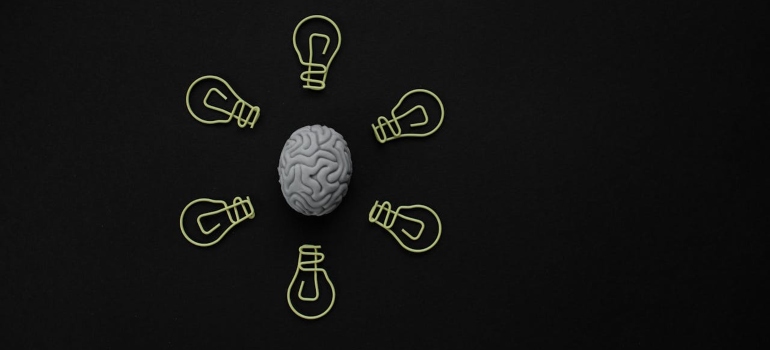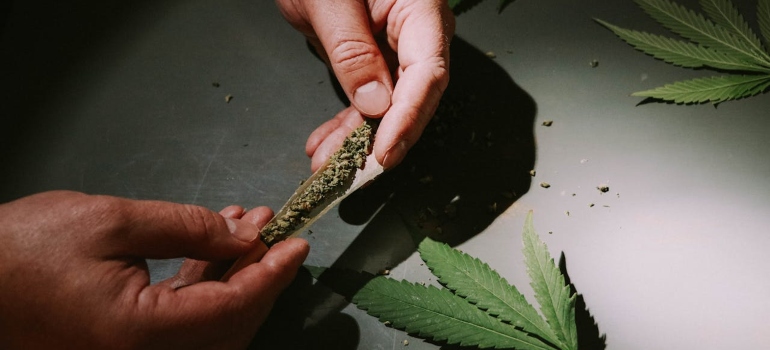Drugs, whether prescribed or illegal, can have profound effects on a person’s emotional state. The chemicals in these substances interact with the complex system of the brain, leading to significant changes in how emotions are experienced and expressed. Understanding how drugs alter your emotional state is necessary for recognizing the potential risks involved. We will explore the various mechanisms through which drugs influence emotions and the consequences that can arise from these alterations.
The Brain’s Role in Emotional Regulation
The human brain controls emotions through a delicate balance of neurotransmitters, which are chemicals that transmit signals between nerve cells. Neurotransmitters like dopamine, serotonin, and norepinephrine are important for regulating mood, pleasure, anxiety, and stress. When these chemicals are in balance, emotions are typically stable. However, when drugs interfere with this balance, the emotional state can be drastically affected. Neurotransmitters and emotions:
- Dopamine: Often called the “feel-good” neurotransmitter, it plays a significant role in reward and pleasure.
- Serotonin: This neurotransmitter regulates mood, sleep, and appetite, contributing to feelings of well-being.
- Norepinephrine: Involved in the body’s stress response, it influences alertness and arousal.

When drugs are introduced into the system, they can either increase or decrease the levels of these neurotransmitters. For instance, stimulants like cocaine cause a surge in dopamine, leading to intense pleasure but also disrupting the brain’s natural regulation. Depressants like alcohol lower serotonin levels, which can result in feelings of depression. Additionally, some drugs cause long-term damage to the brain’s ability to produce neurotransmitters naturally, creating a lasting imbalance. This disruption often leads to a reliance on the drug to maintain emotional balance, further complicating recovery.
Short-Term Emotional Effects of Drug Use
Last month, 13.5% of Americans aged 12 and older used drugs. Drugs can have immediate and profound effects on a person’s emotional state, often providing a temporary escape from reality but frequently leading to unintended emotional disturbances. The power of these substances often lies in their ability to quickly alter mood, making them appealing to those seeking relief from stress, anxiety, or depression. However, the emotional effects are typically short-lived and can come with significant downsides.
Euphoria and Mood Elevation
Many drugs, particularly stimulants like cocaine and amphetamines, create a sense of euphoria or intense pleasure. These substances flood the brain with dopamine, making the user feel extraordinarily happy or energized. Opioids like heroin or oxycodone have a similar effect, providing a rush of pleasure that can be overwhelmingly addictive.
This temporary high may be a major factor in why people continue using, despite knowing the negative consequences. Unfortunately, the brain begins to crave this increased feeling of pleasure, leading to the continuous pursuit of the drug, even at the expense of one’s emotional and physical well-being.
Anxiety and Paranoia
On the flip side, some drugs can induce anxiety or paranoia. Marijuana, hallucinogens like LSD, and certain stimulants may cause users to experience increased anxiety, fear, or even panic attacks. These emotional responses can be intense and frightening, particularly in unfamiliar or stressful environments. People under the influence of these substances might feel as if they are being watched or judged, causing paranoia that distorts their perception of reality.

Depression and Irritability
As the effects of a drug wear off, it’s common for users to feel depressed or irritable. This emotional crash can be severe, especially with drugs that dramatically alter neurotransmitter levels. For example, after a cocaine high, the sudden drop in dopamine can lead to a profound sense of emptiness or sadness. This irritability can turn into frustration and even aggression, leading to strained relationships and a decrease in social functioning.
Long-Term Emotional Consequences of Drug Use
The emotional impact of drugs doesn’t stop in the short term; prolonged use can lead to serious, long-lasting emotional issues that are often difficult to reverse. The brain’s neurochemistry can be significantly altered by chronic drug use, creating enduring changes in mood regulation, emotional resilience, and overall mental health. These changes can result in a range of persistent emotional and psychological challenges that extend well beyond the period of active drug use.
Chronic Mood Disorders
Long-term drug use can significantly alter brain chemistry, leading to chronic mood disorders. Depression and anxiety are common among those who abuse drugs for extended periods. The brain may become reliant on the substance to maintain a sense of normality, making it hard to experience pleasure or contentment without it.
Some drugs damage the brain’s natural ability to produce dopamine or serotonin, causing ongoing depression or anxiety. This can make recovery even more difficult, as the person may not feel emotionally stable for a long time after stopping drug use.
Emotional Numbness
Drugs, especially depressants like alcohol and benzodiazepines, can lead to emotional numbness over time. This blunting of emotions can make it difficult for people to connect with others or experience joy. They may feel detached from their emotions, struggling to care about things that once mattered. It can make everyday activities, once enjoyed, feel meaningless, and relationships suffer due to the lack of emotional engagement.

People who turn to drugs to escape pain or discomfort often find themselves emotionally disconnected as their brain numbs emotional responses to protect itself. This emotional shutdown can persist, creating further social isolation and increasing dependency on the substance.
Increased Risk of Mental Health Issues
Continued drug use can increase the risk of developing severe mental health disorders. Conditions such as bipolar disorder, schizophrenia, or borderline personality disorder may emerge or worsen with prolonged substance abuse. Many drug users who suffer from mental illness may find their symptoms amplified by drug use, leading to worsening mental health over time. Dual diagnosis is common in drug rehab centers in WV, where patients are treated for both addiction and mental health disorders simultaneously.
The Cycle of Addiction and Emotional Instability
The relationship between drugs and emotions often creates a vicious and self-perpetuating cycle. The more an individual relies on drugs to manage their emotions, the more emotionally unstable they may become. This cycle of addiction and emotional instability is one of the most challenging aspects of substance abuse, as it traps people in a loop where drug use and emotional distress feed off each other, making it increasingly difficult to break free.
Emotional Dependence
Many people turn to drugs to escape negative emotions like sadness, anger, or anxiety. Over time, this can lead to emotional dependence, where the person feels they cannot cope without the substance. This dependence can trap them in a cycle of use, emotional instability, and further dependence.
This cycle of emotional dependence may lead people to turn to more dangerous drugs or increase the dosage of substances they’re already using. In this cycle, the person uses the substance to relieve negative emotions, only to find that the feelings come back stronger when the effects of the drug wear off.
Reinforcement of Negative Emotions
Drugs can create a feedback loop, where the emotional highs and lows reinforce negative feelings. For instance, a person might use a drug to feel better temporarily, only to crash emotionally when the effects wear off. This crash can drive them to use again, perpetuating the cycle of addiction. These mood swings become more pronounced over time, making it harder for the person to regulate emotions without the use of the substance.

Withdrawal and Emotional Turmoil
Withdrawal from drugs is not just a physical challenge; it can also lead to significant emotional distress that profoundly affects the individual’s mental and emotional well-being. The process of withdrawal is often accompanied by a range of intense emotional symptoms that can be just as debilitating as the physical ones, if not more so. These emotional symptoms arise because the brain, after prolonged exposure to drugs, struggles to regain its natural balance without the substance. During withdrawal, individuals often experience intense emotional symptoms. These can include:
- Anxiety: A sense of unease or panic
- Depression: Profound sadness or hopelessness
- Irritability: Quick to anger or frustration
- Mood Swings: Rapid changes in emotions
These symptoms often mirror the emotions that the individual was using drugs to avoid in the first place. Without the drug to mask the feelings, the emotions resurface in full force. The emotional symptoms can be more challenging than the physical withdrawal symptoms for some, making it important to seek professional help.
Coping with Emotional Withdrawal
Managing the emotional symptoms of withdrawal requires a multifaceted approach. Here are some strategies:
- Professional help: Seeking assistance from healthcare providers or attending a partial hospitalization program West Virginia can provide the necessary support.
- Support groups: Connecting with others who are going through similar experiences can offer comfort and encouragement.
- Healthy Coping Mechanisms: Engaging in activities like exercise, meditation, or journaling can help manage emotions during withdrawal.
Therapists and counselors in family therapy for addiction can also provide valuable tools for emotional regulation and managing cravings during the withdrawal process.
Drugs and Emotional Expression
Drugs not only alter how emotions are felt but also significantly impact how they are expressed, leading to noticeable changes in behavior, communication, and interpersonal relationships. These changes can be subtle at first, but over time, they can severely affect an individual’s ability to interact with others in a healthy, constructive manner. The altered emotional expression caused by drug use often leads to misunderstandings, conflicts, and a breakdown in relationships, which can further exacerbate the cycle of addiction and emotional distress.

Certain drugs can impair emotional control, making it hard for individuals to manage their reactions. This lack of control can result in outbursts, aggression, or inappropriate behavior. For example, someone under the influence of alcohol might become uncharacteristically angry or violent.
Drugs can also change how emotions are perceived, leading to misunderstandings or conflicts in relationships. For instance, family therapy for addiction often addresses how drug use can distort emotional communication, making it difficult for loved ones to connect or understand each other.
The Role of Environment and Expectations
The environment in which drugs are used and the user’s expectations play a significant role in shaping the emotional experience of drug use. The effects of drugs are not solely determined by the chemical properties of the substance itself; they are also heavily influenced by external factors, including the setting in which the drug is consumed, the individual’s mental state, and their expectations about the drug’s effects. These factors can dramatically alter the emotional and psychological impact of drug use, sometimes intensifying the effects or leading to unexpected emotional responses.
The emotional effects of drugs are not only determined by the substance itself but also by the setting in which it is used. For example, a person may feel more relaxed using a drug in a familiar, safe environment, while the same drug could cause anxiety in an unfamiliar or stressful setting.
The placebo effect, where a person experiences emotional changes based on their expectations rather than the drug itself, is well-documented. Conversely, the nocebo effect can cause negative emotions if the user expects a bad experience. These psychological factors highlight the complex relationship between mind, environment, and substance use.
Rebuilding Emotional Stability After Drug Use
Recovering from drug use involves more than just detoxifying the body. It also requires rebuilding emotional stability. Emotional healing is a crucial part of recovery. Therapy and counseling are often essential in this process, helping people address the emotional scars left by drug use. Engaging in healthy activities that promote emotional well-being, such as hobbies, exercise, and meditation, can also support recovery.

Supportive relationships are necessary for regaining emotional balance. Family, friends, and community can provide the encouragement and understanding needed during recovery. At West Virginia treatment center, we emphasize the importance of a strong support system in helping people stay on the path to emotional stability.
Recovering individuals must learn new coping mechanisms to deal with stress and negative emotions. Family therapy for addiction is one effective way to rebuild relationships and support systems, which are important for long-term emotional stability.
What Happens When Drugs Alter Your Emotional State
Drugs can have a profound impact on emotions, leading to both short-term and long-term consequences. Understanding how drugs alter your emotional state is the first step in recognizing the potential dangers. If you or someone you know is struggling with emotional instability due to drug use, seeking help is necessary. Reaching out to professionals or support groups can provide the guidance needed to regain emotional stability and well-being.
Reference:
https://drugabusestatistics.org/#:~:text=13.5%25%20of%20Americans%2012%20and%20over%20used%20drugs,or%20misused%20prescription%20drugs%20within%20the%20last%20year.



